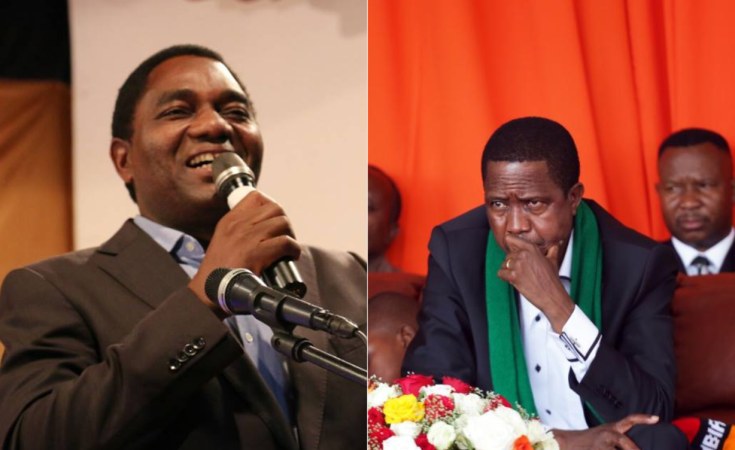Lusaka, Zambia — Zambia's former ruling Patriotic Front party has rejected a report by the International Monetary Fund saying corruption flourished under its government.
The IMF said this week the political elite under former president Edgar Lungu bent rules to access lucrative government contracts. Current President Hakainde Hichilema pledged to tackle corruption and secured $1.3 billion in IMF debt support after Zambia defaulted to creditors.
An IMF mission conducted a study last year focusing on governance weaknesses and corruption vulnerabilities in Zambia at the request of local authorities.
The assessment revealed serious weaknesses across all state functions, especially public financial management and the granting and managing of contracts of large infrastructure projects. It said the cost of high-profile projects were inflated by as much as 200 percent under Lungu, with the extra money going into the pockets of well-connected Lungu supporters.
Several former government officials were arrested on corruption charges. However, the arrests ended in bail, with defendants denying the accusations. No convictions have been secured.
Patriotic Front spokesperson Raphael Nakachinda denied the IMF allegations of large-scale corruption under Lungu.
Nakachinda told VOA that while in government, the Patriotic Front had put in place measures to ensure transparency and accountability in public procurement. He challenged the current government to take legal action against any of its former leaders found wanting.
"We ensured at the time that we were in office that all government contracts go through a rigorous public bidding process to ensure transparency and accountability and there are sufficient laws in Zambia to allow citizens to object, appeal or challenge any government contract process they deem is shrouded in corruption. The tender process is a public process and therefore those allegations are malicious," Nakachinda said.
Presidential spokesperson Anthony Bwalya told VOA that the IMF report is a confirmation of what the government of Hichilema has always known -- that corruption in Zambia had worsened under the Lungu administration.
"This is why the president has made it a fundamental priority to win the fight against corruption as part of the process towards rebuilding the economy," Bwalya said. "We have set up the financial crimes fast track courts to expedite the process of holding accountable perpetrators of grand scale corruption, we have also reformed the public financial management systems for better transparency as well as reforming the public procurement process."
For Boyd Muleya, an economist at the research organization the Centre for Policy, Trade and Development, the IMF report is an important step toward enhancing the fight against corruption in Zambia.
"We are happy that there's a drum up towards ensuring that the rule of law is brought back, that transparency is enhanced, we are still yet to hear the progress on access to information in this country," Muleya said.
The Jesuit Centre for Theological Reflection -- a faith-based non-governmental organization that champions social justice -- told VOA the alleged corruption affected the poor the most in the past 8 years, because they were left without access to basic social services like water, food, sanitation and health.
According to the World Bank, about two-thirds of Zambia's population lives on less than two dollars a day.


